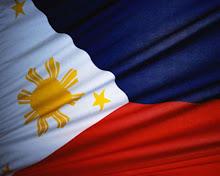By Nikko Dizon
Philippine Daily Inquirer
First Posted 02:57:00 10/16/2010
MANILA, Philippines—President Benigno Aquino risked earning the ire of the court when he announced amnesty for Sen. Antonio Trillanes IV and his group of military rebels two weeks before the court promulgates its verdict on their coup d’etat case, some legal experts said Friday.
The office of Makati Regional Trial Court (RTC) Judge Oscar Pimentel has said that Pimentel will proceed with the promulgation of his decision on the case as scheduled on Oct. 28.
“The question is the timing. I cannot see what is the strategic or tactical advantage with the President coming out with it (the amnesty) now. That is the part I don’t get at all, unless there is a deal that people don’t know about,” one of the experts—a private lawyer respected in legal circles—said on the phone.
He said an amnesty announcement after Pimentel shall have handed down his verdict “would have been the proper time” for Mr. Aquino because at the very least, “the court has spoken” after seven years of trial.
And if Pimentel handling the coup case eventually convicts Trillanes and the other accused, Mr. Aquino may have a hard time getting Congress to concur with his amnesty proclamation, the experts said.
These are the situations that confront Mr. Aquino as a result of his “act of grace” toward the military rebels who tried three times to overthrow the government of then President and now Pampanga Rep. Gloria Macapagal-Arroyo, according to two legal experts interviewed by the Inquirer.
The experts declined to be identified—one asked to remain anonymous because of the sensitive position he holds as an official in the government. The other expert is involved in the coup cases against Trillanes and the so-called Magdalo officers.
The lawyer said that he saw no direct legal impact of Mr. Aquino’s early announcement of amnesty but he pointed out that the Chief Executive risked antagonizing the courts.
Better to have waited
Had Mr. Aquino waited for Pimentel to resolve the coup cases, the lawyer said, the President would not be antagonizing the courts and the prosecutors would not have gone “berserk” (hindi nag-alburoto).
The lawyer said Mr. Aquino’s announcement could also provoke the ire of Judge Pimentel.
He noted that Trillanes and a number of Magdalo officers already offended the judge when they walked out of their court hearing on Nov. 29, 2007, setting the stage for the Manila Peninsula hotel siege, where they again demanded the resignation of Arroyo and ended up being slapped with more criminal charges.
And if Trillanes, et al. were acquitted?
The lawyer said: “Then that would render the amnesty moot and academic.”
In a separate interview, the government official said that Mr. Aquino could grant amnesty to Trillanes and the others even after the promulgation of the case.
Chance for the opposition
The official surmised that perhaps Mr. Aquino amnestied Trillanes and the others before the promulgation of the verdict because it might be harder for him to get Congress to concur with his amnesty proclamation if Pimentel convicted the military rebels.
The official said the political minority, especially the allies of Arroyo, would have a chance to pummel the proclamation and urge their colleagues not to concur with it especially “if the judge hands a very powerful and strong decision” on the case.
Magdalo spokesperson Ashley Acedillo said on the phone: “What’s important is that the President granted the amnesty. We are eagerly awaiting both Houses of Congress to concur with it.”
“Good or bad timing, we leave that to the legal minds,” Acedillo said.
Separation of powers
A Palace official said that Pimentel was well within his authority to decide the coup cases against the Magdalo officers.
“We recognize the separation of powers. We are not questioning his promulgation of the case,” Communication Operations Secretary Herminio Coloma said. With a report from Norman Bordadora
Subscribe to:
Post Comments (Atom)

No comments:
Post a Comment